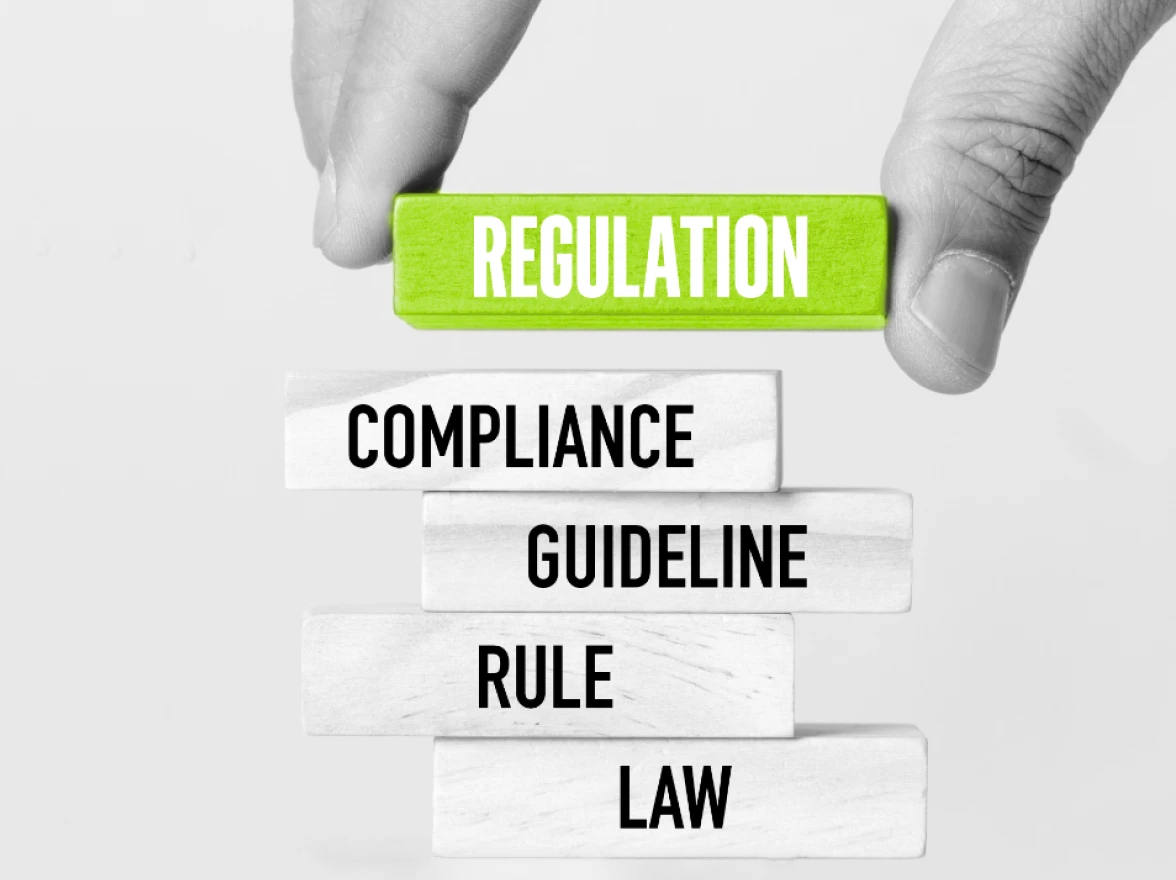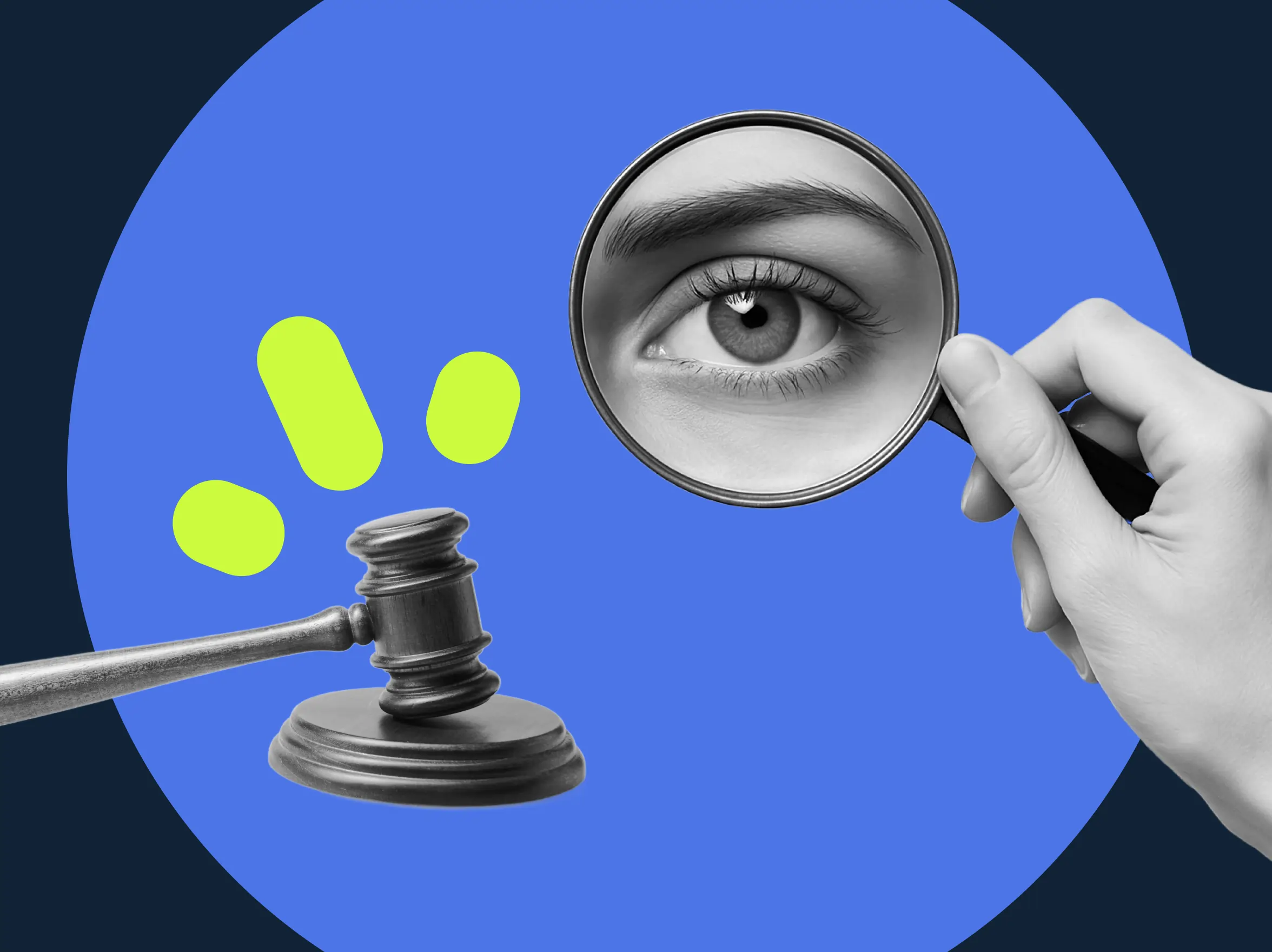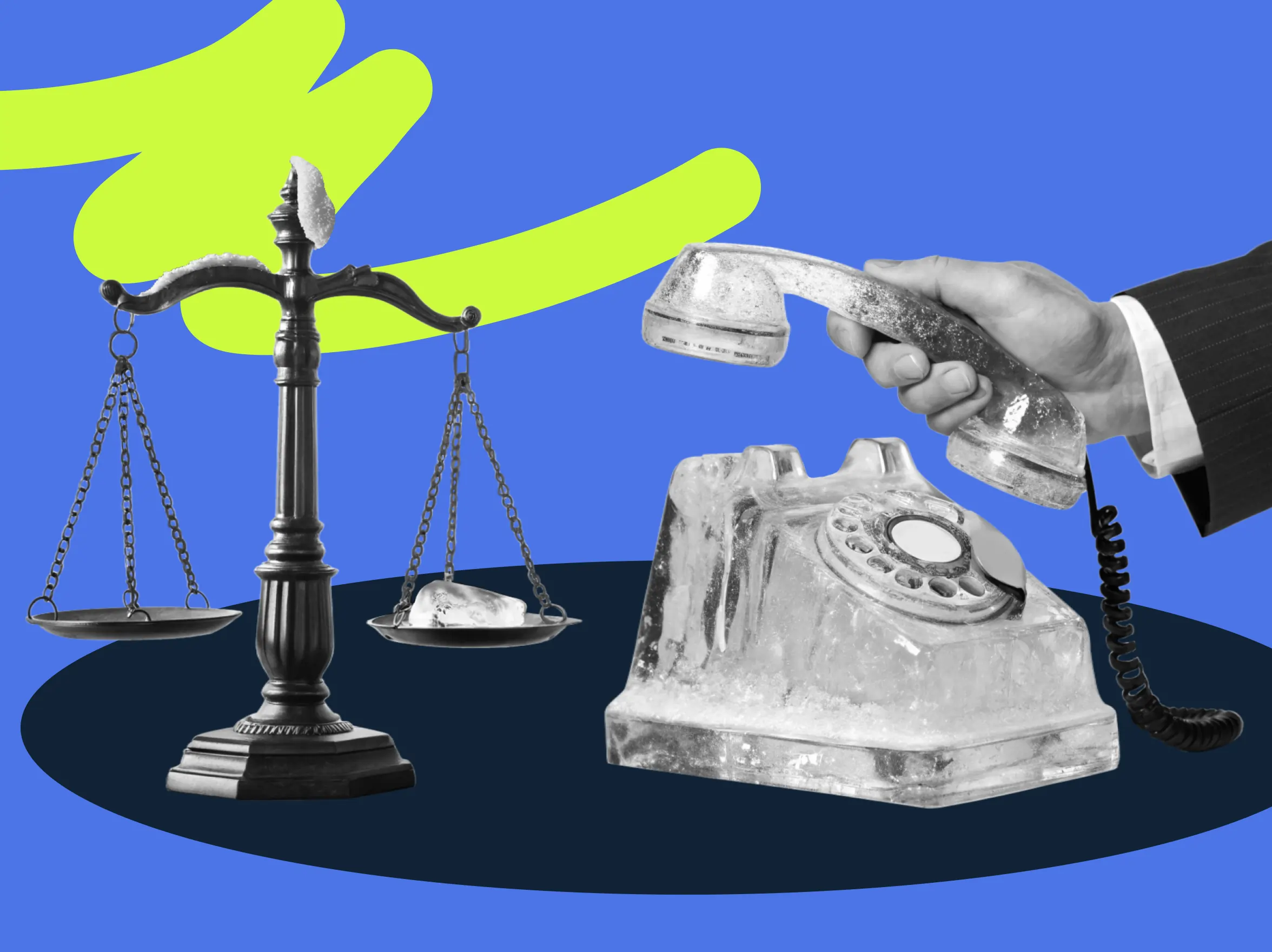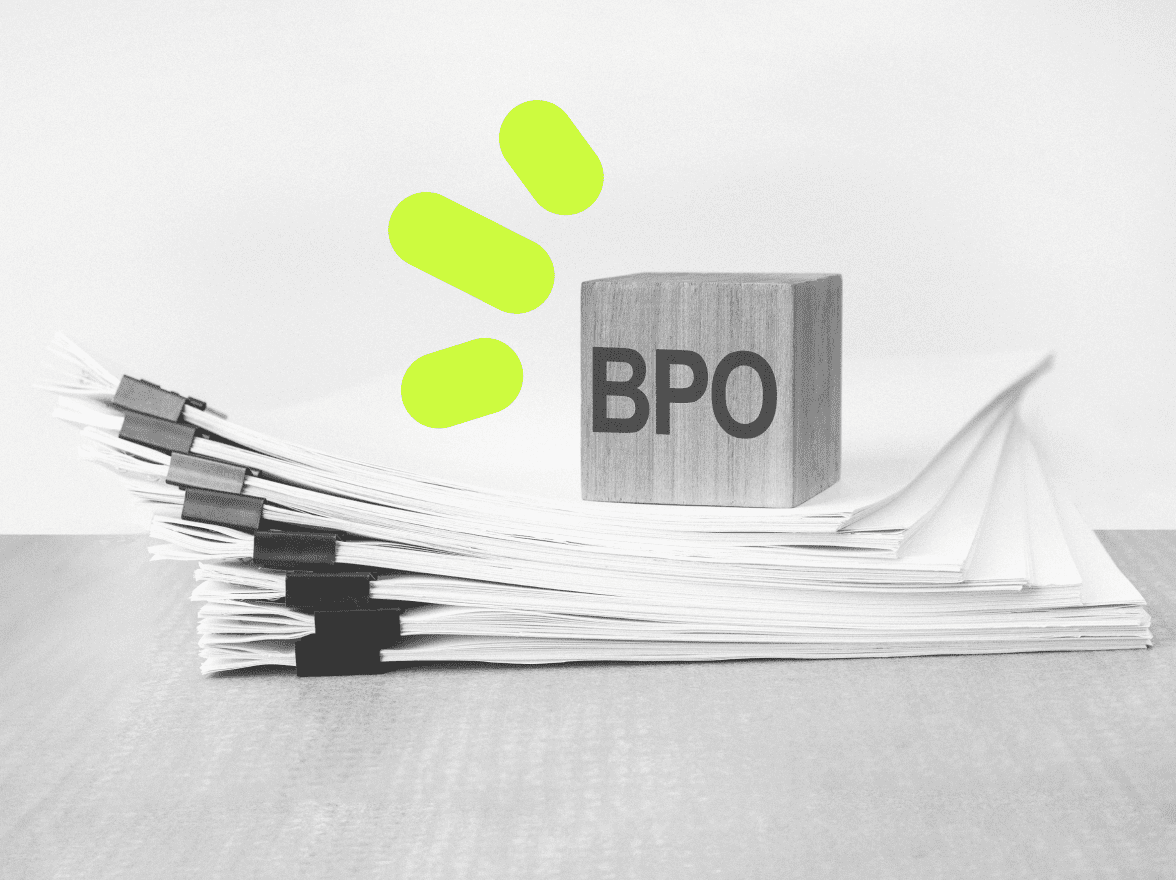Call center regulations can often be a dense and seemingly impenetrable net of laws – but pleading ignorance will not get you out of legal jeopardy if you violate them and cause a call center compliance issue. Before you place a single phone call, make sure that you are in compliance by reading through our guide below. We’ll walk you through data privacy laws, call recording/monitoring regulations, financial responsibilities, and more.
New FCC call center rules
The FCC announced a series of new rules regarding call center regulatory compliance in December 2023. One of the major aspects of that – on one-to-one consent regarding lead generation – was blocked by an appeals court. While the FCC can appeal that ruling, as of this writing (mid-2025), it has not done so.
However, there is a litany of other new FCC rules. Two key new rules that relate to call centers and small businesses are:
- Consent Revocation: Consumers can revoke consent for robocalls/robotext through “reasonable” means, including texting, calling, and email. Businesses must honor these requests within 10 business days.
- Do Not Call = Do Not Text: The Do Not Call list (see below) now extends to texting.
What is call center compliance?
Call center compliance refers to adherence to ethics, laws, court rulings, and other key regulations and standards governing call center operations. In the United States, these rules and regulations exist at the national, state, and sometimes even local levels.
This subject covers a broad category, which includes:
- Telemarketing and contact rules
- Data privacy
- Recording and monitoring regulations
- Financial disclosures
All four are crucial and must be closely monitored to avoid call center legal issues.
Proper compliance protects consumers from harassment and deceptive practices. But it also protects businesses from frustrating customers and damaging their image.
Call center regulatory compliance in 2026
There are numerous national and international call center rules that must be followed. Below is a succinct chart of American and international compliance requirements:
| Law / Regulation | Key Points / Penalties | What It Covers | Who It Affects | Jurisdiction |
|---|---|---|---|---|
| TCPA (Telephone Consumer Protection Act) |
Requires consent for robocalls and auto-dialing. Penalty: $500 per violation, $1500 for willful violations |
Telemarketing & outbound call rules | Outbound call centers, marketing firms, and telemarketers | USA |
| Do Not Call Registry (DNC) |
Prohibits calls to registered numbers without explicit consent. Penalty: up to $53,088 per violation |
Telemarketing & outbound call rules | Telemarketers, call centers | USA |
| Telemarketing Sales Rule (TSR) |
Bans calls outside 8 a.m.–9 p.m., requires disclosures, and DNC compliance. Penalty: up to $53,088 per violation |
Telemarketing & outbound call rules | Telemarketers, sales, call centers | USA |
| Canadian Radio-television and Telecommunications Commission (CRTC) |
Adheres to DNC list (not the American), restricts calls to 9 a.m.–9:30 p.m. (Mon–Sat), 10 a.m.–6 p.m. (Sun). Penalty: Up to CAD 1,500 (individuals), CAD 15,000 (businesses) |
Telemarketing & outbound call rules | Call centers targeting Canadians | Canada |
| General Data Protection Regulation (GDPR) |
Requires clear consent, secure data handling, and deletion post-purpose. Penalty: Up to €10M or 2% annual turnover (lesser violations), €20M or 4% (major) |
Data privacy | Call centers handling EEA data | European Economic Area (EEA) |
| Health Insurance Portability and Accountability Act (HIPAA) |
Requires patient consent for PHI sharing, minimal disclosures. Penalty: up to $68,928 per violation, up to ~$2M/year (civil); $50,000–$250,000, 1–7 years jail (criminal) |
Data privacy | Call centers handling protected health information (PHI) | USA |
| Gramm-Leach-Bliley Act (GLBA) |
Requires opt-out for data sharing, secure NPI handling. Penalty: $100,000 per violation (institutions), $10,000 per individual, up to 5 years jail (criminal) |
Data privacy and financial protection | Call centers handling nonpublic personal information (NPI) | USA |
| Children’s Online Privacy Protection Act (COPPA) |
Requires parental consent, privacy notices, and data deletion options. Penalty: Up to $53,088 per violation |
Data privacy | Call centers gathering data from children under 13 | USA |
| Electronic Communications Privacy Act (ECPA) |
Requires one-party consent for recording and secure data storage. Penalty: $500/day or $10,000 (civil, whichever is greater); $100,000 (misdemeanor) or $250,000 (felony), 1–5 years jail |
Call recording & monitoring | Call centers | USA |
| Payment Card Industry Data Security Standard (PCI DSS) |
Encrypt cardholder data, use firewalls, and restrict access. Penalty: Varies depending upon the company; contract termination |
Financial protection & data privacy | Call centers handling cardholder data | Global (private industry standard) |
| Equal Credit Opportunity Act (ECOA) |
Prohibits credit discrimination, requires adverse action notices. Penalty: $11,524 per violation, $576,192 (class action) |
Financial protection | Call centers handling credit applications | USA |
| Truth in Lending Act (TILA) |
Requires clear disclosure of credit terms. Penalty: $5,781 per violation, ~$1,100,000 or 1% of the creditor’s worth (class action) |
Financial protection | Call centers offering credit | USA |
| Fair Debt Collection Practices Act (FDCPA) |
Prohibits harassment, requires validation notices. Penalty: $1,000 per violation, $500,000 (class action) |
Financial protection | Third-party debt collection call centers | USA |
| Dodd-Frank Wall Street Reform and Consumer Protection Act (Dodd-Frank) |
Prohibits unfair/deceptive acts, requires secure data. Penalty: $6,813, $34,065, or $1,362,614 per violation |
Financial protection and data privacy | Call centers handling financial products | USA |
| Sarbanes-Oxley Act (SOX) |
Requires accurate financial reporting and internal controls. Penalty: $100,000 individual, $2,000,000 corporate; $1,000,000 or $5,000,000, 7–20 years jail (criminal) |
Financial protection | Call centers for public companies | USA |
Telemarketing & contact rules
The Telephone Consumer Protection Act (TCPA)
Passed and signed into law in 1991, the Telephone Consumer Protection Act (TCPA) is the foundation of modern American telemarketing rules. Almost all call center customer service compliance rules stem from it.
- Purpose: The TCPA was passed to prohibit individuals or companies from calling individuals, without their consent, using auto dialers or prerecorded calls. It also gave the Federal Communications Commission (FCC) broad authority to create more regulations.
- Key requirements: Callers must obtain permission to make calls when using pre-recorded messaging or auto-dialers.
- Penalties: Each violation can incur a $500 fine, and if the person/company “willfully or knowingly violated” the TCPA, the fine can reach $1,500 per violation.
Do Not Call Registry (DNC)
The FCC, exercising its authority under the TCPA, sought to create a National Do Not Call List. But while the TCPA authorized creating the list, it did not authorize creating a compliance requirement consisting of a registry (collection) of numbers. As a result, in 2003, Congress passed the Do-Not-Call Implementation Act, which allowed the Federal Trade Commission (FTC) to create such a registry. In doing so, they created the Do Not Call Registry.
- Purpose: To allow Americans to partake in call filtering by requesting not to be called by cold callers.
- Key Requirements: Legal compliance requires companies not to call anyone on the Do Not Call List unless they have received prior explicit permission.
- Penalties: The FTC can fine violators up to $53,008 per violation. The FCC can also fine violators under the TCPA fine scheme: $500 per violation and $1,500 per knowing violation.
The Telemarketing Sales Rule (TSR)
The Telemarketing Sales Rule (TSR) was created under the Telemarketing and Consumer Fraud and Abuse Prevention Act, which empowered the FTC to issue it.
- Purpose: To protect consumers from deceptive and abusive telemarketing practices.
- Key Requirements: Cold calls are illegal when they are made outside of 8:00 to 9:00 PM (within the receiver’s time zone). Any policies affecting payment (such as no refunds) must also be disclosed. Businesses and callers must comply with the Do Not Call List and may not place phone calls to anyone on the list.
- Penalties: As with the DNC List, penalties can reach $53,088 per violation. Lawsuits can likewise be launched under the TCPA fine scheme.
Canadian Radio-television and Telecommunications Commission (CRTC)
The Canadian Radio-Television and Telecommunications Commission came into existence under the 1993 Telecommunications Act and seeks to ensure that Canadians’ privacy is protected and that they are not harassed by telemarketing calls.
- Purpose: To protect Canadians from unwanted telemarketing calls and faxes by regulating consent, call practices, and transparency
- Key Requirements: Businesses must adhere to the Do Not Call List, may not call outside 9:00 AM to 9:30 PM Monday through Friday (10:00 AM to 6:00 PM on weekends), and must disclose who they are and why they are calling.
- Penalties: Individuals can be fined up to 1,500 Canadian dollars for each violation, while businesses can be fined up to 15,000 Canadian dollars.
Data privacy laws
General Data Protection Regulation (GDPR)
The General Data Protection Regulation (GDPR) is the European Economic Area’s (EEA) regulatory framework for digital privacy and security compliance.
- Scope: The personal data of individuals in the European Economic Area (EEA) by organizations established in the EEA or offering goods/services to or monitoring EEA residents, regardless of the organization’s location.
- How it applies to call centers: The processing of personal data (such as names and phone numbers) of EEA residents for telemarketing, customer service, or debt collection, including when the call center is located outside the EEA.
- Data handling and consent rules: Consent for calls must be “given by a clear affirmative act.” Data must be “collected for specified, explicit and legitimate purposes” and deleted after.
- Penalties for violations: Lesser violations can incur fines of up to 10 million euros or 2% of annual turnover (whichever is higher). More significant violations see double the fines.
Health Insurance Portability and Accountability Act (HIPAA)
The Health Insurance Portability and Accountability Act (HIPAA), passed in 1996, forces businesses to protect data relating to medical issues. It is a crucial call center compliance regulation for business associates with healthcare providers.
- Scope: HIPAA applies to medical businesses and any business contracted out to handle protected health information (PHI) and their operations (such as contacting patients)
- How it applies to call centers: Any call center contracted by a medical business must adhere to HIPAA.
- Data handling and consent rules: Patients must consent to any and all sharing of PHI. All disclosures must be as limited as necessary.
- Penalties for violations: The government enforces heavy compliance monitoring for HIPAA. Violations fall into two buckets: criminal and civil liabilities. Civil violations range from $500 to $50,000 per violation, with a maximum of $1.5 million per year (inflation-adjusted for 2025, this would be up to $68,928 per violation). Criminal penalties range from $50,000 to $250,000 and can also include jail time, ranging from one year to seven.
Gramm-Leach-Bliley Act (GLBA)
In the United States, the Gramm-Leach-Bliley Act (GLBA), passed in 1999, legalized certain financial mergers. But it also had an impact on how financial organizations must handle nonpublic personal information.
- Scope: The GLBA applies to and regulates financial institutions in the U.S. that collect, use, or disclose consumer NPI.
- How it applies to call centers: Financial institutions (such as banks or creditors) and any contact centers that handle NPI.
- Data handling and consent rules: Consumers must be given the opportunity to opt out of third-party data sharing. Companies must ensure data security for NPI and that it is kept safe to the best of their ability.
- Penalties for violations: Civil penalties are heavy: institutions which violate the GLBA can be fined $100,000 per. If an individual within an institution knowingly violates or directs a violation, they can personally be fined $10,000 per violation. Criminal penalties for violating the GLBA can result in imprisonment (up to 5 years) and/or a fine of up to $10,000.
Children’s Online Privacy Protection Act (COPPA)
The Children’s Online Privacy Protection Act (COPPA) protects information obtained about children under 13 years of age in the United States. It was passed in 1998 and went into effect in 2000.
- Scope: The act covers operators of websites, online services, or mobile apps that are directed at children under 13 in America. It also concerns other businesses that knowingly collect information about such children.
- How it applies to call centers: This law regulates call center operations when they collect information about or from children under 13.
- Data handling and consent rules: Parents must be provided with privacy notices and given the ability to delete their children’s data upon request. Like with other laws, the data must be kept safe.
- Penalties for violations: The bill, as written, treats violations as equivalent to violations of the Federal Trade Commission (FTC) Act, which caps fines at $10,000 per violation. Due to the Inflation Adjustment Act, that fine has now risen to $53,088.
Call recording and monitoring regulations
Electronic Communications Privacy Act (ECPA)
The Electronic Communications Privacy Act (ECPA) of 1986 was enacted to address the rapid growth of electronic and digital communications. In doing so, it extended the Wiretap Act.
- Scope: The ECPA protects wire, oral, and electronic communications during transmission and the storing of said calls. It prohibits unauthorized interception, access, or disclosure by private parties or the government.
- How it applies to call centers: If an agent engages in any of the above, their activity is covered by the ECPA, and they must comply with regulations.
- Data handling and consent rules: Interception or call center monitoring requires prior consent from at least one party. Data security must be implemented to the best of the company’s ability.
- Penalties for violations: Civil penalties can be $500 per day or $10,000 (whichever is greater). Misdemeanors under the ECPA can run you from $100,000 (for individuals) or $500,000 (for organizations); felonies are $250,000 for the former and $500,000 for the latter. Jail time is also a factor. For less severe crimes, you can be jailed for up to a year; more severe crimes can result in a sentence of up to five years.
State-Specific Call Recording Laws (U.S.)
As a federal republic, the United States of America is a patchwork of 50 different states, upon which national laws are overlaid. This legal system makes call center compliance more difficult and requires your call center agents to pay particular attention not only to federal laws but also to state laws, both the state you are calling from and the state(s) you are calling to.
One-party consent: This means that only one person must be made aware that the call is being recorded or monitored. This is the federal standard, so technically it would not matter if a state did not have it as a law; however, since every state requires at least one-party consent, violating that can result in prosecution by state and federal authorities.
New York is a one-party consent state, as defined in its law on the subject (it uses the term “Eavesdropping”).
All-party consent: Sometimes called a two-party consent law, this is a more stringent standard, and requires everyone in a call be made aware of monitoring and/or recording.
California is an example of an all-party consent state. The Invasion of Privacy Act bans listening in on or recording a call without all participants being made aware. The other all-party states are Connecticut, Delaware, Florida, Illinois, Maryland, Massachusetts, Montana, Nevada, New Hampshire, Oregon, Pennsylvania, and Washington.
Financial regulations
Payment Card Industry Data Security Standard (PCI DSS)
The Payment Card Industry Data Security Standard (PCI DSS) is, unlike the other regulations on our list, not a federal or state regulation. It is instead a voluntary regulation created by the credit card companies themselves (Visa, MasterCard, American Express, Discover, and JCB) in order to synchronize their data standards.
- Compliance triggers: Any business that accepts, processes, stores, or transmits credit or debit must practice compliance management on this regulation.
- How it applies to call centers: If your contact center deals with payments in any way – even if you are a customer service provider who only processes refunds – this applies to you.
- Security standards: Individuals or companies covered must encrypt cardholder data, use firewalls, restrict access, monitor networks, maintain security policies, and conduct regular testing to ensure compliance.
- Disclosure requirements: Businesses must provide privacy notices.
- Customer protections: The data protection helps eliminate fraud and abuse.
- Penalties: Although this is not a federal law, by using card services, you are in non-compliance and, therefore, in breach of contract if you do not abide by the rules. Financial penalties can therefore range dramatically, depending on the provider; however, all can cancel any contractual agreement.
Equal Credit Opportunity Act (ECOA)
The Equal Credit Opportunity Act (ECOA), signed by President Gerald Ford, sought to eliminate discrimination in credit decisions based on race, color, religion, national origin, sex, marital status, age, or other protected characteristics.
- Compliance triggers: The ECOA applies to all businesses that provide, analyze, or deny credit to individuals or companies.
- How it applies to call centers: This serves as a call center law because it applies to contact centers that handle credit applications, loan inquiries, or credit-related services.
- Security standards: Individuals applying for credit should have their data reasonably protected.
- Disclosure requirements: Individuals denied credit must be informed of the steps they can take and of their rights under ECOA; failure to do so may violate consumer rights.
- Customer protections: Customers can confidently apply for credit knowing that rejection is not due to key immutable characteristics.
- Penalties: Penalties for a single violation, as written in the law, reach up to $10,000 ($11,524 in 2025).
Truth in Lending Act (TILA)
The Truth in Lending Act (TILA) was passed into law in 1968. TILA mandates a variety of regulations, particularly that credit and loan providers offer clear disclosures of terms to individuals who are receiving credit/loans. To carry out the terms of TILA, the Federal Reserve issued Regulation Z.
- Compliance triggers: Anyone who offers credit, of any type, is liable under the law.
- How it applies to call centers: A call center that offers credit or acts as an intermediary for a company that does so must adhere to these call center compliance regulations.
- Security standards: Like other laws on our list, TILA requires reasonable safeguards for creditor information.
- Disclosure requirements: Individuals who apply for any type of credit – from credit cards to home equity accounts – must be informed of all aspects of the credit agreement.
- Customer protections: This law ensures that creditors cannot be abused by sneaky lenders and will know their rights.
- Penalties: Violators are liable to civil and criminal penalties. For civil penalties, a class action lawsuit can reach up to $1 million or 1 percent of the creditor’s net worth (whichever is less).
Fair Debt Collection Practices Act (FDCPA)
Signed by President Jimmy Carter in 1977, the Fair Debt Collection Practices Act (FDCPA) ensures that consumers are protected via the elimination of abusive debt collection practices. Like our previous call center law, this law gave federal authorities the ability to carry it out via regulation, which they did via Regulation F.
- Compliance triggers: This applies to third-party debt collectors collecting consumer debts on behalf of creditors, including discussing payments or disputes.
- How it applies to call centers: Call centers collecting debt on behalf of another party must abide by the law.
- Security standards: Call centers are compliant with regulations when they reasonably protect information.
- Disclosure requirements: Within five days of initial contact, the collector must provide their contact with all necessary information, including money owed and how the individual can dispute their debt.
- Customer protections: The law prohibits harassment and false attempts to collect debt.
- Penalties: Civil penalties can be up to $1,000 per violation. Administrative penalties can run violators, as per the statute, $5,000 (over $53,000 inflation-adjusted) per violation.
Dodd-Frank Act
The Dodd-Frank Wall Street Reform and Consumer Protection Act (frequently shortened to just Dodd-Frank) was signed by President Barack Obama in the aftermath of the Great Recession. The bill was designed to prevent another collapse like 2008’s and also included some consumer protection provisions.
- Compliance triggers: Financial institutions, creditors, or debt collectors offering consumer financial products/services are covered by the law.
- How it applies to call centers: Call centers that handle consumer financial products – such as mortgage inquiries, credit card applications, or debt collection – for covered entities like banks or lenders must abide by the law.
- Security standards: Covered institutions must ensure data security and compliance with regulations from related agencies, like the Consumer Financial Protection Bureau.
- Disclosure requirements: Requirements under the aforementioned Regulations Z and F apply here, as do
- Customer protections: The law prohibits unfair, deceptive, or abusive practices/acts (frequently shortened to UDAPP in discussions regarding Dodd-Frank).
- Penalties: Penalty amounts vary depending on severity. In the first tier, violating institutions can be fined $5,000 per day ($6,813 in 2025). In the second, $25,000 ($35,065). And in the third, they can be fined up to $1 million ($1,362,614) per day.
Sarbanes-Oxley Act (SOX)
Signed into law by President George W. Bush in 2002, the Sarbanes-Oxley Act (shortened to SOX) enhanced corporate accountability, financial transparency, and investor protection. The law was passed after a series of scandals, most notably the early 2000s ENRON Scandal. The Securities and Exchange Commission oversees the carrying out of the law.
- Compliance triggers: Publicly traded companies and their agents who manage financial records, reporting, or internal controls will be subject to SOX compliance monitoring.
- How it applies to call centers: SOX’s compliance standards apply to contact centers that handle financial data or investor inquiries for public companies, such as discussing earnings reports or managing customer accounts tied to financial reporting.
- Security standards: Companies are required to install internal controls to protect data.
- Disclosure requirements: SEC filings must be reported accurately.
- Customer protections: Investors are protected by ensuring accurate financial reporting and fraud prevention.
- Penalties: Civil penalties can reach up to $100,000 per violation for an individual and $2,000,000 for corporations. Criminal penalties can go higher: $1,000,000 and/or 7 years in prison.
Internal organizational policies and guidelines to stay compliant
To ensure contact center compliance, organizations must implement strong internal policies and controls. Below is a list of best practices:
- Agent training: Comprehensive training programs should educate agents on federal and state call recording laws, emphasizing consent requirements. Training should include role-playing scenarios to practice obtaining consent, recognizing exempt calls, and handling opt-outs, and should be regularly re-done.
- Call monitoring policies: Clear policies mandate obtaining consent before recording during call handling, and should come at the beginning of the call.
- Internal audits: Regular audits should review recorded calls to verify compliance with consent laws, disclosure requirements, and data security standards. Compliance teams monitor for non-compliance and flag violations.
- Real-time alert tools: Automated systems can provide real-time alerts to agents, prompting consent notifications or pausing recordings when sensitive data is detected. These tools can even integrate with CRM systems to secure compliance!
- Quality assurance (QA): QA programs evaluate call recordings against compliance scorecards, assessing adherence to legal standards, script accuracy, and consumer protections. QA teams can then provide feedback to agents for targeted training.
- Compliance scorecards: Scorecards track agent performance on key compliance metrics, such as consent documentation and proper disclosures, assigning scores to ensure accountability. Monthly reviews drive continuous improvement, aligning with best practices for internal compliance enforcement.
- Record retention policies: Policies limit storage of recordings to the minimum necessary period, ensuring secure deletion to comply with data protection laws, which can reduce breach risks (while also freeing up space).
Why are call center compliance standards important?
Call center compliance standards help mitigate regulatory scrutiny, enhance trust with customers, and ensure operational integrity across sales, customer service, collections, and marketing.
In sales
Compliance does not just keep you legally safe: it also builds trust, something which is vital for consumers, 64% of whom prioritize trust in brand interactions.
However, legal penalties are also a significant factor, and sales reps who adhere to rules and regulations for call center agents can avoid hefty fines.
In customer service
Adhering to regulations in call centers can enhance customer satisfaction and customer trust. After all, 81% of consumers, according to Pew Research, are concerned with how private companies use their data. Service agents following consent rules protect brand reputation, avoiding negative reviews.
In collections and accounts receivable
FDCPA compliance can reduce disputes by 25% through proper validation notices. Plus, collections officers help avoid chargebacks and fines.
In marketing
Compliance with TCPA ensures trusted campaigns, as people are less likely to feel that they are being taken advantage of through suspicious-seeming advertisements.
How can MightyCall help?
MightyCall’s cloud-based call center software aids compliance with regulations like the TCPA, FDCPA, ECPA, PCI DSS, HIPAA, and GLBA, helping call centers record calls legally, manage consent, and meet legal standards for call center compliance.
- Call recording with consent: Automatically records calls with customizable consent notifications, ensuring compliance with ECPA and state laws.
- Do Not Call (DNC) management: Blocks calls to National/internal DNC lists and enforces TCPA time restrictions, avoiding fines.
- Real-time monitoring: Supervisors monitor live calls and coach agents, ensuring FDCPA-compliant scripts and internal policy adherence.
- Secure data handling: Encrypts call data and logs, meeting PCI DSS and GLBA standards to prevent breaches.
- Documentation & reporting: Provides exportable call logs and recordings for FDCPA compliance and audits.
MightyCall isn’t a complete compliance solution. Legal instruction and careful attention to detail are needed to avoid violating US and Canadian call center laws (we again stress that none of this should be considered legal advice). But it can significantly reduce risks.
schedule your personalized demo with our amazing team

Risks of non‑compliance in call and contact centers
Financial penalties
Non-compliance can result in substantial fines, which can severely impact a contact center’s financial status.
Example:
ViSalus Inc. faced a staggering $925 million in damages for making more than 1.85 million unsolicited robocalls in violation of the TCPA regulations. The decision was eventually overturned, but ViSalus was still on the hook for 15% of that $925 million, a big fine for failing to engage in proper monitoring.
Legal action
Violations of call center regulations, such as HIPAA or TCPA, may lead to lawsuits, including class actions, which can be costly and time-consuming to defend against, especially if your call center agents were not trained for it.
Example:
UCLA agreed to pay $7.5 million to settle a class-action lawsuit after a breach exposed the personal and medical information of millions of individuals.
Loss of trust
When clients learn that a call center did not follow the regulations and has mishandled their info or engaged in unethical practices, they may lose trust in their contact center security policies, leading to customer attrition.
Example:
Facebook’s Cambridge Analytica scandal, where info from millions of Facebook users was improperly shared. The compliance regulation violations led to significant trust erosion and a sharp decline in user engagement.
Operational disruptions
Addressing call center compliance violations can require seriously changing how your call center operates, forcing disruptions to normal business activities, and leading to a loss of productivity.
Example:
British Airways was fined £183 million (later reduced to £20 million) for a breach that compromised personal details from 500,000 clients. This forced their contact centers to scramble to address the security issues amid a flood of angry callers.
Reputational damage
Compliance incidents can severely damage a company’s reputation, especially when violations become public. Negative publicity can reduce customer loyalty, attract regulatory scrutiny – risking time-consuming call center compliance audits – and impact long-term business prospects.
Example:
Wells Fargo faced massive public backlash after it was revealed that employees created millions of unauthorized accounts in order to meet sales targets. Potentially worse for the company than the public backlash was the fine, to the tune of $100 million, by the Consumer Financial Protection Bureau. The scandal arose from severe compliance and ethical failures and led to billions in losses, the resignation of Wells Fargo’s CEO, further compliance audits (which in turn cost them money), and a tarnished brand reputation.
Common mistakes & challenges in call center compliance
Call centers operate in a fast-paced environment in which agents have to talk to lots of people. In situations like these, even the most skilled agents, armed with the most advanced call center compliance software, will make mistakes. Here are the most common errors:
- Relying on old or improvised scripts: Scripts guide call center agents and keep your center compliant. But if the script hasn’t been updated in months, or if agents are winging it, you could easily miss legally required disclaimers or violate other rules.
- Not getting clear consent: Whether it’s for recording a call or sending an outbound message, you must get clear, documented permission. Skipping this step (or being vague about getting permission) can violate laws like TCPA and GDPR. A simple checkbox or recorded statement can save headaches later.
- Inconsistent or outdated agent training: Regulations change, scripts evolve, and even experienced agents need refreshers. If training only happens during onboarding, your team could be mismanaging sensitive data or saying things that violate privacy rules without even realizing it.
- Weak call documentation or monitoring: Recording calls isn’t enough. If you’re not organizing that data properly – or monitoring calls for compliance – you’re flying blind. And when regulators ask for proof? “We think we recorded it” won’t cut it. Poor documentation can leave you exposed.
- Using technology behind the times: Older systems might still function, but they often miss the basics: encryption, integration with compliance tools, or real-time monitoring. That makes it harder to catch violations early. And sometimes, it becomes impossible to prove you were compliant at all.
- Overlooking jurisdiction-specific rules: If you’re serving customers in different states or countries, you’ll need to navigate different consent laws, calling hours, recording rules, and data retention guidelines. One misstep, even unintentional, can cause problems fast.
- Outsourcing without clear accountability: Outsourcing can save money, but only if your third-party vendors follow the same standards you do. If their call center agents are cutting corners or using non-compliant systems, your company could be liable.
- Delays in responding to data breaches: Breaches happen, even in well-managed centers. What turns a problem into a crisis, however, is how you respond. Delaying your notification to affected customers (or regulators) can turn a bad day into a long-term legal and PR disaster.
- Mishandling customer data retention: Some companies keep customer data “just in case.” Others delete it too early and can’t produce records when needed. Both are risky. Every industry has its own rules on how long you can (or must) keep data.
Best practices for ensuring call center compliance: Checklist
To avoid common compliance mistakes like outdated scripts, lack of consent, tech blind spots, and multi-jurisdictional confusion, stay aligned with these best practices to align with key contact center compliance standards.
1. Develop a comprehensive policy
Verify that your compliance policy covers all applicable regulations. Collaborate with legal counsel to create a document that can be seamlessly and easily updated regularly. As AmplifyAI advises, “Your policy should bridge the gap between regulations and day-to-day operations.”
2. Train agents with ongoing programs
Train every agent at onboarding and refresh quarterly using role‑plays, quizzes, and real scenarios. Says Convoso, “Thorough training is a critical component of any call center compliance program.”
3. Record and secure communications
Record customer interactions only after explicit consent and encrypt all stored recordings.
4. Monitor calls with automated tools
Use speech analytics AI tools like Balto and auto‑QA to score calls, flag missing disclosures, and provide real-time alerts.
5. Authenticate and document interactions
Authenticate callers at the start of each call, then log all actions. This documentation is vital for audits and regulatory reviews, and can be crucial for regulatory agencies that want to ensure that contact centers are compliant with their rules.
6. Scrub DNC phone numbers and manage consent logs
Honor DNC lists by scrubbing against both national registries and internal opt‑out databases before dialing. Regularly update consent logs and ensure agents confirm consent live, every time they start a call.
The top 3 call center compliance trends to watch in 2026
- AI-driven call center compliance monitoring: Emerging AI-powered platforms are transforming how call centers manage risk. From real-time voice analytics to automated red-flag detection, AI enables proactive compliance enforcement and 100% call coverage—something manual QA teams could never scale. The key benefit: faster issue resolution and reduced regulatory exposure.
- Advanced enforcement technologies: Regulators are increasingly using their own tech, such as pattern recognition software, to ensure compliance. This tech-on-tech enforcement means call centers must ensure they use compliant call center software.
- Greater focus on cross-border compliance: As more call centers serve international clients, there’s a predicted rise in multi-jurisdictional enforcement. Regional rules such as GDPR and LGPD, and state-level laws such as California’s Consumer Privacy Act, require more precise handling of consent and localized compliance protocols.
- Data sovereignty and secure AI training: With the widespread adoption of generative AI in call centers, regulators are tightening restrictions on how customer data is used to train AI models. Expect compliance frameworks to prioritize on-premise model training, stricter data anonymization, and enhanced auditing of third-party AI vendors to prevent unlawful data sharing.
Follow the rules and keep your customers happy
Contact center security and compliance regulations in 2025 require you to pay attention to telemarketing rules, data privacy laws, and more. They create a web of complexity which can at times seem overwhelming.
However, by conducting self-audits, maintaining proper documentation, ensuring your agents receive appropriate call center training, and using cloud call center software, you can confidently check everything off the list and stay compliant.



























